Check out some books by your tutor Fiona Veitch Smith … (click on the book covers to find out more)
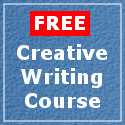 Hello everyone, welcome to the first session of our free online creative writing course. Over the next eight sessions we will be looking at different aspects of creative writing and trying our hand at various forms. I’d strongly encourage you to have a go at the exercises along the way, and please feel free to leave comments or ask questions at the end. If you have arrived on this page without first reading the home page and frequently asked questions page (on tab above) please go back and do so now. If you have read them, enjoy the course!
Hello everyone, welcome to the first session of our free online creative writing course. Over the next eight sessions we will be looking at different aspects of creative writing and trying our hand at various forms. I’d strongly encourage you to have a go at the exercises along the way, and please feel free to leave comments or ask questions at the end. If you have arrived on this page without first reading the home page and frequently asked questions page (on tab above) please go back and do so now. If you have read them, enjoy the course!
Creativity and Art
What is creativity? The Collins dictionary defines it as ‘the ability to cause something to exist’. Without getting into too much of an existential discussion, I would say that with every thought that is expressed, something has been created. It was Descartes who said: ‘I think, therefore I am’; well I would add, ‘I think, therefore I create’ (do you feel a God complex coming on?). But how do we express our thoughts? Sometimes we do it verbally, other times by body language and still again through what is loosely termed ‘art’.
Art takes place when a thought is expressed and fixed in a way that other people may experience it on an aesthetic level – through music, writing, painting, sculpture, choreography and so on. Many artists say that their best work takes place when they ‘by-pass’ the thought and simply express the feeling. This may be true, but for writers, who use a verbal medium, a feeling must first be converted into a thought before it can be put into words. Don’t over analyse the thought before you express it, as this way you can ‘channel’ the purest interpretation of the feeling, but some cognitive process needs to take place. Some writers prefer to mull over a thought and give it form before they put pen to paper – I’m one of them – but it’s good practice to try and switch off the ‘editor’ at least for the first draft. First response trigger exercises are useful in this regard and can release some unexpected words and images.
Exercise 1:
Write down your first response to these words or phrases:
- Blue ball
- And that’s when the sadness came
- Coffee
The first task of a good writer is to convert feelings into thoughts and then into words. This is the raw material that can then be converted into something more permanent. Some writers refuse to toy with their first drafts, believing their creativity will be diluted; I disagree. Allowing your critical mind to improve a piece of writing is where the craftsman meets the artist. Something produced only by the former will lack soul and something by the latter will lack form. Good writing is a combination of art and craft.
For public consumption
Art, of course, is highly subjective and one woman’s masterpiece is another woman’s unmade bed. We all have the ability to create, but whether or not our creation is ‘art’ must be left to the eye or ear of the beholder.
In this session we will look at how you can craft those creative thoughts into creative writing to share with other people. And that’s what sets ‘public’ writing apart from ‘private’ scribblings – there’s a perceived readership in mind. When I ramble on in my journal, I am the only one who will read it (hopefully!) so my only concern is getting my thoughts down on paper. The moment I want someone else to read it I begin to consider ways to improve the presentation and craft it into something more aesthetically pleasing. I consider which words may sound more colourful, whether or not my sentence structure is grammatically correct, whether I’m using evocative imagery, and so on.
Story, feeling or image?
What is it about those creative thoughts that you think might be of interest to other people? Do they speak of an eternal truth or a common experience? Do they make you laugh or cry? Do they suggest a story that will entertain or a poem that captures a moment that must be shared?
Exercise 2: In 50 words or less write down why you want to write then list three creative thoughts that you’ve had lately (each 10 words or less). These may be an image, a musing, a ‘truth’, a story, or so on. If you haven’t had any, take yourself for a walk and look around; what grabs your imagination? Browse through a newspaper or a magazine; do any stories or pictures catch your attention? Think back over your day; did anything funny, charming, shocking or unusual happen to you or someone you know?
Poetry or prose?
Some people are more suited to writing poetry than prose and some people do well at both. Although we won’t be discussing it in this course, other people are more suited to script. I’m one of them. I’ve had relative success as a prose writer and in fact have managed to earn a living from it, but it’s taken years of hard work to get to this point. I recently branched out into scriptwriting and found that I had much more of a natural ability. (If you’re interested in finding out more about scriptwriting, check out getting started in playwrighting). You may find that you’ve been trying to make it as a poet when actually you’re more suited to prose. Now I don’t want to pigeonhole anyone, but ask yourself the following questions:
- Are you more attracted to films than stills?
- Do you enjoy telling people ‘stories’ from your life?
- Do you prefer to read stories or poems?
If yes, to these, then you may be more suited to prose than poetry. If no, then the opposite may be true. If it’s ‘sometimes yes, sometimes no’ then perhaps you are suited to both. We shall be looking at how to write poems in more detail in session 7, but suffice to say, a poem is like a snapshot of a moment. If you can’t rest until you know what happened before and after, then prose may be your genre.
Exercise 3: Take one of the three creative thoughts you wrote down in Exercise 2, then list 20 separate words that communicate or describe that thought. Do not, at this stage, link the words into sentences. Once you have your 20 words use them in a poem of 16 lines or less. Then, take the same 20 words and work them into a short story of under 300 words. Which exercise came more easily? Which form has best communicated your creative thought?
Further Resources:
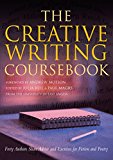
There are some excellent resources out there for creative writers. To get quick ‘starter’ images when your own well is dry I recommend The Writer’s Block by Jason Rekulak. I’m currently working through The Creative Writing Coursebook by Julia Bell and Paul Magrs and finding it very useful.
The next creative writing course session is how to write a short story. But before you move on to that, please feel free to leave a comment or ask a question in the box below.
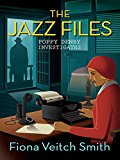
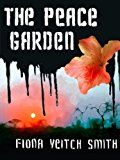
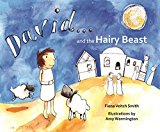
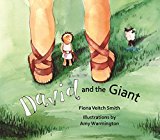
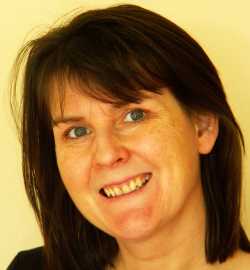 Welcome to The Crafty Writer's free online creative writing course, presented by Fiona Veitch Smith, a freelance journalist, editor, author, playwright, screenwriter and writing teacher. I hope that you'll see a dramatic improvement in the quality of your writing as you work through this course.
Welcome to The Crafty Writer's free online creative writing course, presented by Fiona Veitch Smith, a freelance journalist, editor, author, playwright, screenwriter and writing teacher. I hope that you'll see a dramatic improvement in the quality of your writing as you work through this course.
Very nice begining. I am looking forward. Thank you very much.
Hi! I stumbled across this site when I was looking for a free creative writing course, as I am aspiring to be an author, but I cannot seem to write much before throwing all my ideas away. I completed the first lesson well enough to understand it all, but exercise 3 proved difficult. I’ve only written stories, or at least, parts of stories, so trying to write the poem was difficult. I know how you wrote that when you’re a prose writer, it’s going to be difficult to write poetry, but I still wanted to try. Every time I tried to get a poem written, I couldn’t come up with the words to do it.
It seems strange to me, since I have written some poetry before (when I was in third grade for a Poetry and Prose contest in my school district). I’ve been writing bits of stories since seventh grade, when some of my favorite authors and my English teacher inspired me. I, at that time, wanted to become an author, but by eighth grade, I found that while writing seemed easy to me, I just couldn’t complete any of the stories I ever tried to write, so I gave up on my dream of being an author. Since then, I aspired to become an engineer, but now it doesn’t look like I’ll have the potential to become one, since I have begun to fall in math.
I recently decided I would try to be an actor, but again, I failed. I’ve tried multiple times to do different things, but every time I do, I seem to fall back to writing, even though I fail every time.
When I came across this site, I was able to do some more as far as writing goes, but it is still difficult for me.
Is there any advice anyone could give me? Should I give up my childhood dream of becoming an author and try for something easier, or should I keep trying?
Thank you.
I’m afraid only you can answer that Rayne. I never gave up on my childhood dream. I’m not sure how old you are, but you could do a university or college course in creative writing. But creative writing doesn’t earn much money. I would suggest doing a writing-related job such as PR and Communications or Journalism. A degree in media will give you marketable skills while using your writing talent. You can continue writing creatively on the side. That’s what I did. Good luck.
I am currently trying to write my first novel. It is a sci-fi/fantasy novel. I have never written anything before (well, besides personal journal entries and some copywriting for a tech firm) so I would like to take a creative writing course to help me write my book. Would you have a course you would recommend for this?
Hi Rebecca, this is the only creative writing course I have available online. It will teach you the basics you need. Beyond that, perhaps a paid for course such as what the Open University provides would help you. Good luck.
Thank you this course. Prose as I have learned so far is better for me. Feel like a writer already…LOL !
What fun!
Thanks so much for this course. I have managed to write about something that has been very hard for me to write about.
I’m very glad to hear it. I hope you have found healing through it.
I would find it more useful to have some kind of feedback along the way, so that I’m able to use that feedback to improve my skills. Without that, it is like a shot in the dark, so to speak.
Then this isn’t the course for you Ginger. There are plenty of courses that you pay for that will give you that. Hope you find something to suit your needs and your budget.
will i be given certificate at the end of the program
There’s no certificate, Judith. This is just for self-improvement not as a formal educational qualification.
Hi Fiona,
Finally, a course that I resonate with. Thank you, lesson 1 was fun, especially exercise 3, writing a short story was flowing and effortless, however, creating a poem was a bit challenging. I am eagerly looking forward with the next exercises. Thank you.
You’re welcome, Susu. Happy writing!
Fiona, just love this course. Been writing out of necessity – not really concentrating on what I am writing. I have needed to lean the basic lessons/skills in Creative Writing. I have always loved to write, Just never had the time to really study it. I am finding when I get started, the words just flow.
Thanks so much for sharing your great knowledge and skill with us new kids on this journey.
Delighted to have helped you along, Joy. Happy writing!
Wow, I think both my poem and short story developed well. Your exercises were very helpful having the 20 words there to use. I’m very excited about my next step. thank you.
That’s lovely to hear. Hope you continue to gain value from it.
Interesting exercise to write a poem and then prose. So I found the poem to be harder to write and then the prose came out nothing like the poem. Now I will write a poem again. I want to see how writing in prose first changes how I approach the poem.
Just started your course and I love it! I have one novel written but am blocked big time so I have backed myself up and am doing some studying to sort myself out! I also ordered The Creative Writing Coursebook and I’m looking forward to going through that as well! Thank you for providing lessons on line for free, so helpful!!!
You’re welcome Beth. Happy writing!
I understood.thanks
I would like to find out how to write my own biography eventually. I like short stories too.
This is a nice quick introduction. Thank you
You’re welcome. Happy writing!
Thank you for posting this course. This first set of exercises has been helpful to get me in a creative mindset. It was also helpful how you described writing as progressing from feelings and then thoughts. It will give me a more concrete starting place to try to consider the feelings that come up for whatever the topic at hand is, rather than merely waiting for inspiration to strike.
You’re most welcome. I’m glad you found it helpful, Dani.
I found this exercise very helpful, I have along way to go but I’m willing Togo the distance. I believe I have something to offer the world in story land, with hard work and discipline.
It sounds like you have a sensible attitude to your writing, Marcia. I look forward to your stories being released into storyland.
This is the course will unleash my writing skills.
I hope it does just that, Augustus.
Love these lessons, I have found them very productive. I so appreciate the life that has been breathed back into my writing. Speaking to the various learning styles….. excellent!!!!
Jana
You’re welcome Jana. I hope your writing will go from strength to strength.
Thank you for this 1st lesson. I always wrote poetry and felt quite stressed about the idea of writing prose. The 3rd exercise really helped me get over it and I produced something. I’m really grateful for all these great tips!
Any recommendations for an online writing diploma?
Thanks a million
Lou
Hi Lou, the Open University does online creative writing degrees. Check them out.